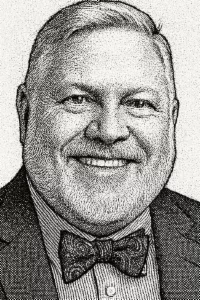By Russell R. Barksdale, Jr.
If you were raised by parents or grandparents born before 1930, you likely absorbed a profound ethic of self-reliance and personal responsibility. This generation—aptly named the “Greatest Generation” by Tom Brokaw—is remembered for its extraordinary sacrifices during the Great Depression and World War II. Their strength was forged in adversity, their values rooted in service, commitment, and quiet fortitude.
Yet, when members of this generation or those deeply shaped by its ethos become caregivers later in life, especially for a spouse, the very traits that once empowered them can become sources of hidden strain. Research consistently shows that being a caregiver, particularly in later adulthood, can take a heavy toll on one’s physical, emotional, cognitive health, and overall wellbeing.
Caregiving, while an act of deep devotion, is rarely without personal cost. It can be physically strenuous, emotionally draining, and socially isolating. The emotional complexity intensifies when the care recipient is a life partner—a person with whom one has shared decades of memories and mutual support.
Cultural and generational influences often lead senior caregivers to assume this burden in silence, guided by values that can now inadvertently negatively contribute to their own wellbeing:
1. An Unshakable Sense of Duty
Caregiving is not just an obligation—it’s a sacred vow. The words “in sickness and in health” were taken quite literally. Delegating such care may feel like a betrayal of marital and moral responsibilities and accepting help may equate to personal failure.
2. Stoicism and Endurance
Shaped by hardship, this generation learned to “make do” and “tough it out.” Showing vulnerability or admitting fatigue may be considered a sign of weakness. As a result, even when overwhelmed, many will resist asking for or accepting assistance.
3. Reluctance to Seek Help
Many adults influenced by this era equate asking for help with being a burden. There is a deep-seated fear of being judged or pitied. In their minds, caregiving is an expected role, not something that warrants special attention or assistance.
4. Privacy and Modesty
This generation values discretion and often views outside intervention as intrusive. Medical or personal care issues are regarded as private matters, meant to be handled within the marital bond. Trust in external support is limited, especially if it feels impersonal.
5. Fear of Losing Control
Accepting help may also feel like relinquishing control—not just over caregiving tasks, but over the household, finances, and even the care recipient’s dignity. The fear of becoming irrelevant or being perceived as incapable may loom large.
For those supporting a caregiver shaped by this generational mindset, the most effective approach is grounded in respect and affirmation. Acknowledge their strength and resilience. Frame offers of help as tools to enhance their loved one’s care—not as a suggestion that they are failing.
Yet, it’s vital to recognize the risks caregivers face for themselves—no matter how committed or resilient they may be:
Declining Physical Health: Prolonged stress elevates the risk of hypertension, heart disease, and a weakened immune system. Sleep deprivation is common, particularly when caring for someone with dementia or mobility issues. Physical injuries from lifting or supporting a loved one are not uncommon, and caregivers frequently neglect their own medical care.
Emotional and Mental Strain: Caregivers are significantly more likely to experience anxiety, depression, and burnout. Many struggle with feelings of guilt when needing rest, and those fleeting private thoughts of resentment only deepen the emotional burden.
Cognitive and Social Consequences: As social connections wane, isolation takes root. Lack of engagement and intellectual stimulation can hasten cognitive decline and lead to a sense of purposelessness. Social isolation is a known risk factor for dementia among senior adults.
Financial Stress: For seniors, the fear of outliving savings is palpable. Caregiving can interrupt estate planning, delay legal preparations, and reduce oversight of household finances. The economic implications can be both immediate and long-term.
While caregiving is undeniably an expression of love and commitment, no one should bear its weight alone. Acknowledging the toll caregiving can take isn’t a betrayal of values, it’s a necessary act of self-preservation. When caregivers receive adequate support, the quality of care for their loved one can easily improve exponentially.
Fortunately, our community is home to a range of nonprofit, mission-driven providers who offer compassionate, dignified support tailored to both caregivers and care recipients. There is no one-size-fits-all solution, but thankfully, there is an individualized path forward.
Care plans can include respite care, support groups, adult day programs, and services provided by specially trained home health aides, nurses, and therapists. These resources not only enhance the quality of care but also ensure that caregivers can safeguard their own health and well-being.
Even experienced healthcare professionals may not always know what support services are free, easily accessible, or covered by insurance. Today’s complex healthcare ecosystem is often confusing by design, filled with red tape, pre-certifications, complex terminology, and technological hurdles.
Thankfully, we live in a community where advanced navigation is freely provided. With patience and understanding gently wrapped in human dignity and respect, we can help remove the barriers, seen and unseen, for even the strongest, self-reliant individual for the benefit of the caregiver and loved one alike.
Russell R. Barksdale, Jr., PHD, MPA/MHA, FACHE is President and CEO Waveny LifeCare Network.


